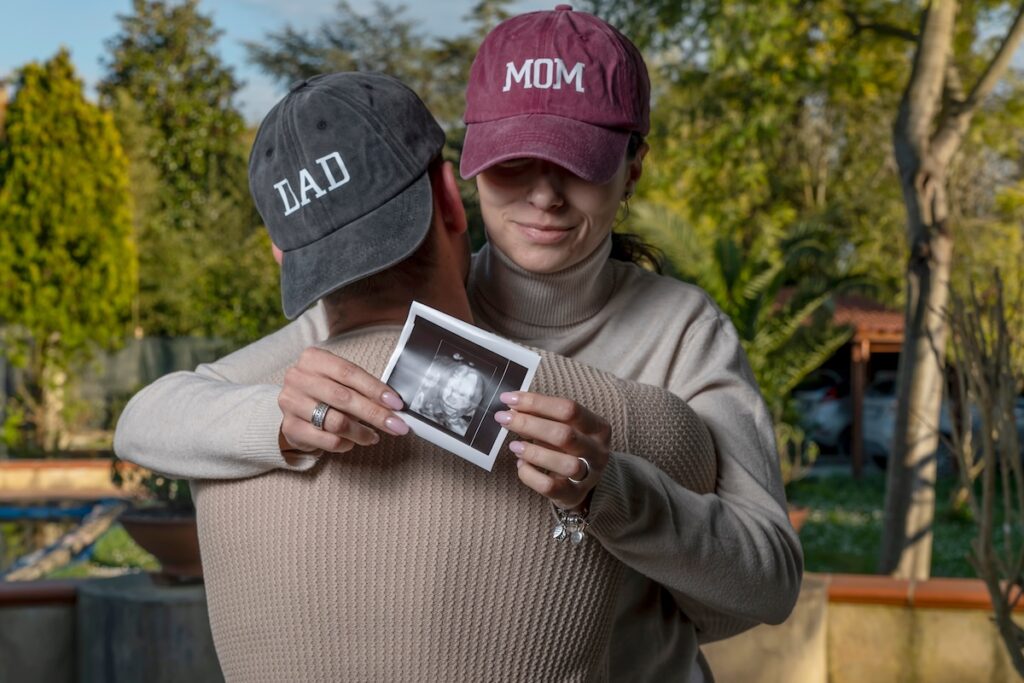
Estate planning doesn’t just reflect what you have today—it anticipates what tomorrow might bring. For many in Glendora and Upland, this means preparing for the unexpected: incapacity, sudden illness, or death. For parents and parents-to-be, the question of whether to include future children in an estate plan often surfaces. Does planning for a child who doesn’t yet exist make sense, or does it complicate your estate unnecessarily? Should you include your unborn child in an estate plan?
While no one can predict the future with certainty, proactive planning provides the structure your family needs to navigate life’s toughest moments. And when you consider adding children to the mix—whether by birth or adoption—that structure becomes even more vital.
Unborn Child in an Estate Plan: Why Future Children Deserve Consideration

Parents who already care for minor children know the importance of estate planning. But what about those still planning a family? If you’re expecting or considering adoption, building flexibility into your estate plan ensures that no child, born or not yet born, gets left behind.
You protect unborn children in an estate plan by:
- Avoiding accidental disinheritance
- Guaranteeing inclusion in asset distribution
- Expressing guardianship preferences in advance
While planning for an unborn child might sound overly cautious, it often beats the alternative: failing to update your estate documents in time. For instance, actor Heath Ledger left his estate to his parents and siblings because he wrote his will before his daughter’s birth. Fortunately, his family voluntarily gave the estate to his daughter, but not everyone finds themselves surrounded by such goodwill. Updating your documents remains critical—whether you plan for future children or not.

Common Pitfalls in Family Estate Planning: Whether to include an unborn child in an estate plan
Most parents know the stakes. Despite that, many still delay. A 2025 survey by Caring.com found that only 24% of Americans have a will. That means three out of four individuals have no plan for their estates, no appointed guardians for their kids, and no instructions on how their assets should be distributed after their death or incapacitation.
Even more concerning: most parents with minor children fall into that unprepared majority. This leaves courts to make guardianship decisions, delays asset transfers, and creates avoidable legal battles. Naming a guardian in your will empowers you to choose who cares for your children in your absence, rather than leaving that decision to a judge unfamiliar with your family.
How to Include Future Children in Your Estate Plan

If you’re planning to expand your family, estate planning doesn’t need to feel overwhelming. Aim for a flexible foundation that adapts with your life.
Use Broad, Inclusive Language
Instead of naming individual children, describe beneficiaries as “all my children, living or hereafter born or adopted.” This phrase includes every child—existing and future—without needing constant revisions.
Inclusive language avoids legal gray areas, especially if you have children years apart or through multiple adoptions. It also promotes fairness, ensuring each child receives their rightful inheritance.
Create or Update a Trust

Trusts allow parents to distribute money and property under controlled conditions. Whether you choose a revocable living trust or testamentary trust provisions within a will, your trustee gains the authority to manage distributions based on milestones or needs.
This structure works well when you expect your family to grow. Rather than rewriting your estate plan each time life changes, you allow the trustee to adjust within your outlined preferences. While this gives the trustee considerable discretion, it also accommodates the unknowns of future children’s personalities, health, or educational needs.
Clearly Outline Guardianship Preferences

Designate a guardian for all minor children, not just those already born. While you can’t assign guardianship to a hypothetical child directly, your intent matters. Courts take these instructions seriously and often follow them unless compelling reasons arise not to.
Before naming anyone, speak with potential guardians. Confirm their willingness to raise multiple children and understand the responsibilities they would assume. Life changes—so should your estate plan. A trusted sibling may look perfect today, but unforeseen circumstances can shift that picture in a few years. Review your plan regularly.
Don’t Overcomplicate Your Estate Plan

A good estate plan covers likely scenarios without becoming too complex. When planning for unborn children, avoid layering endless “what if” scenarios. Every extra clause increases the risk of confusion, delays, and higher administrative costs.
Instead of trying to forecast every possibility, build in flexibility. Name contingent beneficiaries, provide general instructions, and keep your plan adaptable. Clarity and simplicity help your executor or trustee follow your wishes without second-guessing your intentions.
What If You Never Have Children?
Sometimes, people prepare for children who never join the family. If that happens, how you structured your plan determines the outcome.
Here’s how common planning language plays out:
- If you referenced “my children” or “descendants” and never have any, your plan defaults to contingent beneficiaries.
- If your documents mention specific hypothetical children, your executor might need to determine whether any provisions apply.
- If no clear backups exist, the probate court distributes your assets based on California’s intestate succession laws—usually to your spouse, parents, siblings, or other relatives.
Failing to include backup beneficiaries can push your estate into probate court, draining resources and prolonging the process. Keep your instructions straightforward and update them regularly with your estate planning attorney.
Keep Your Plan Current

Planning for future children offers a chance to think ahead—but don’t stop there. Update your estate plan every three to five years or after any major life change. Births, deaths, marriages, divorces, home purchases, or major financial shifts should prompt a review.
Many families create an estate plan and file it away, forgetting to revisit it. According to Caring.com, nearly a quarter of those with estate plans haven’t updated them since the documents were created. That’s a risky move, especially for growing families.
Your estate plan works best when it reflects your current reality—not the assumptions you made five or ten years ago.
Including an unborn child in your estate plan doesn’t mean writing out a detailed roadmap for every potential outcome. It means building in enough flexibility to grow with your family. The best plans protect your current loved ones while leaving room for the life you’re still building.
Final Thoughts: Plan for Possibility, Not Perfection
If you live in Glendora or Upland and want to safeguard your legacy with thoughtful, personalized estate planning, Skvarna Law Firm can help. Whether you need to create your first plan, revise an outdated one, or incorporate new family members into an existing structure, you’ll get guidance tailored to your life and goals.
About Skvarna Law Firm in Glendora and Upland, California
Skvarna Law Firm operates offices in Glendora and Upland, California. We provide legal services. We cover San Bernardino, Los Angeles, Orange, and Riverside Counties. This includes several cities. Upland, Ontario, Rancho Cucamonga, Fontana, Colton, Rialto, Chino, Chino Hills, Glendora, Claremont, Pomona, La Verne, Montclair, San Dimas, Azusa, Covina, West Covina, Diamond Bar, Walnut, La Puente, Corona, Norco & Mira Loma. Visit SkvarnaLaw.com to learn more.


